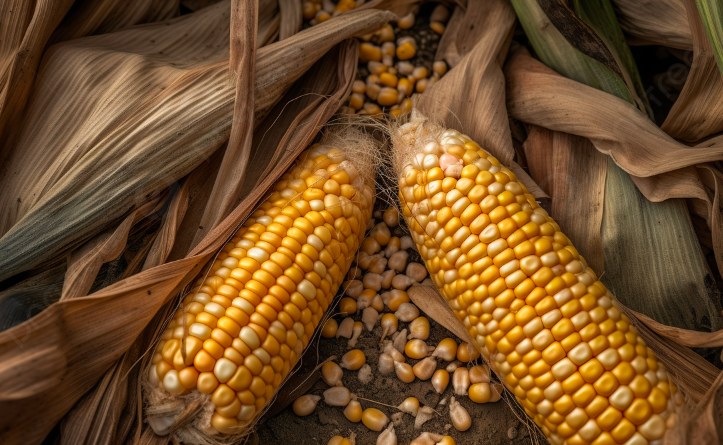Introduction to FPO Corn
FPO corn, or “Farmer Producer Organization” corn, is a concept that has gained traction in agricultural circles, particularly in countries like India. FPOs are collectives of farmers who come together to enhance their bargaining power, streamline marketing, and improve productivity. This article delves into the significance of FPO corn, its benefits, challenges, and the future of this agricultural model.
What is FPO Corn?
FPO corn refers to corn cultivated by members of a Farmer Producer Organization. These organizations facilitate various aspects of farming, from production to marketing. By pooling resources, farmers can achieve economies of scale, better prices for their produce, and access to advanced agricultural practices.
The Structure of FPOs
FPOs are typically registered under government schemes, providing them with a legal framework to operate. Members contribute a small fee, which is used for collective activities. The structure often includes:
- Board of Directors: Elected representatives who make decisions on behalf of members.
- Management Team: Responsible for day-to-day operations and strategic planning.
- Advisory Committees: Experts in agriculture, marketing, and finance who guide the organization.
Benefits of FPO Corn
1. Enhanced Bargaining Power
One of the primary benefits of FPO corn is the enhanced bargaining power it provides to farmers. Individually, farmers may struggle to negotiate favorable prices with buyers. However, as part of an FPO, they can collectively negotiate better prices and terms for their corn.
2. Access to Resources and Knowledge
FPOs often provide members with access to resources that may be otherwise unavailable. This includes:
- Seeds and Inputs: Bulk purchasing reduces costs.
- Training and Workshops: Members receive education on best practices in corn farming, pest management, and sustainable agriculture.
3. Improved Market Access
FPOs can help farmers reach larger markets. They may facilitate direct sales to retailers, participate in exhibitions, or even export corn. This reduces reliance on middlemen and maximizes profits for farmers.
4. Financial Support
Many FPOs help farmers access loans and financial assistance from government schemes and banks. This is crucial for purchasing quality seeds, fertilizers, and equipment needed for effective corn cultivation.
Challenges Faced by FPOs in Corn Production
1. Initial Investment and Infrastructure
Setting up an FPO requires an initial investment in infrastructure, which can be a barrier for some farmers. Establishing storage facilities, transportation, and processing units necessitates capital that may not be readily available.
2. Member Participation and Management
The success of an FPO hinges on active participation from its members. However, apathy or lack of engagement can lead to ineffective management and diminished benefits. Training in management skills is essential to ensure all members are invested in the FPO’s success.
3. Regulatory and Policy Issues
FPOs often face bureaucratic challenges, including navigating the legal requirements for registration and compliance. Changes in government policies can also affect the sustainability of FPOs.
The Role of Technology in FPO Corn
1. Precision Agriculture
Technology plays a crucial role in enhancing corn production within FPOs. Precision agriculture techniques allow farmers to monitor crop health, soil conditions, and weather patterns. This data-driven approach leads to informed decisions and optimized yields.
2. Digital Platforms for Marketing
Many FPOs are leveraging digital platforms to market their corn. Online marketplaces connect farmers directly with consumers, reducing reliance on intermediaries. This approach not only increases profits but also enhances transparency in pricing.
3. Mobile Applications for Training
Mobile applications are increasingly being used to disseminate knowledge among FPO members. These apps provide access to tutorials, expert advice, and market trends, empowering farmers to make informed decisions.
Success Stories of FPO Corn
1. Case Study: The Punjab FPO
In Punjab, a group of corn farmers established an FPO that significantly improved their profitability. By collectively purchasing seeds and fertilizers, they reduced costs by 20%. Additionally, they established a cooperative selling platform that allowed them to sell directly to retailers, increasing their margins.
2. Case Study: The Maharashtra FPO
In Maharashtra, an FPO focused on organic corn production has gained attention for its innovative practices. By implementing organic farming techniques and marketing their corn as “organic,” they successfully tapped into premium markets, yielding higher prices for their produce.
Future Prospects of FPO Corn
1. Policy Support
Governments are increasingly recognizing the importance of FPOs in promoting sustainable agriculture. With ongoing support and favorable policies, the future of FPO corn looks promising.
2. Sustainability and Climate Resilience
As climate change poses challenges to agriculture, FPOs can adopt sustainable practices that enhance resilience. This includes crop rotation, soil health management, and water conservation techniques.
3. Expanding FPO Networks
The success of FPOs in corn cultivation can serve as a model for other crops. Expanding FPO networks across different regions and crops can further empower farmers and create a robust agricultural sector.
Also Read: Understanding CAN Bus a 000 982 0012 GLA 250
Conclusion
FPO corn represents a transformative approach to agriculture, empowering farmers and enhancing productivity. While challenges exist, the benefits far outweigh them, especially with the right support and resources. As FPOs continue to grow and evolve, they hold the potential to revolutionize corn production and contribute significantly to rural economies.


